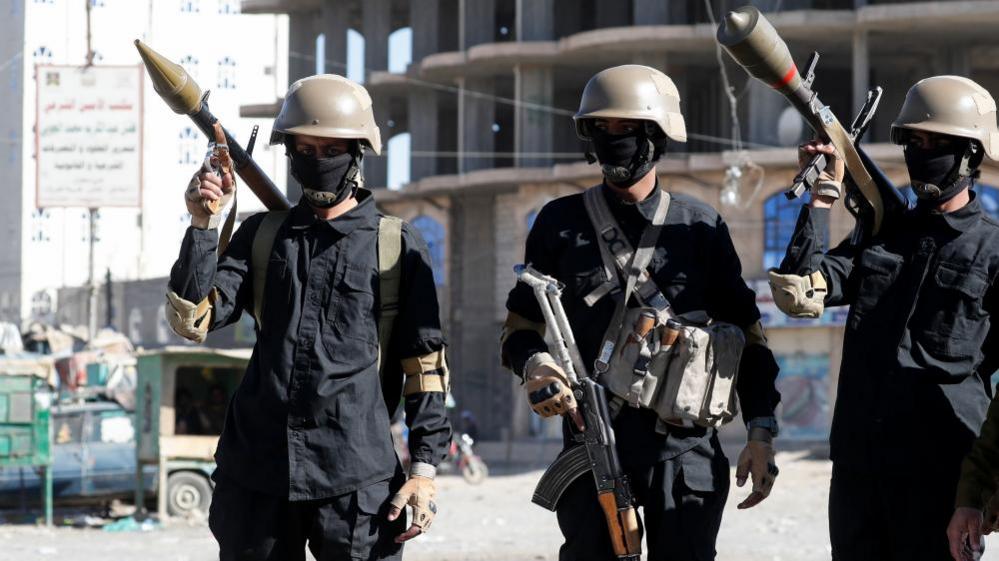Houthi missile hits US-owned cargo ship in Gulf of Aden
- Published
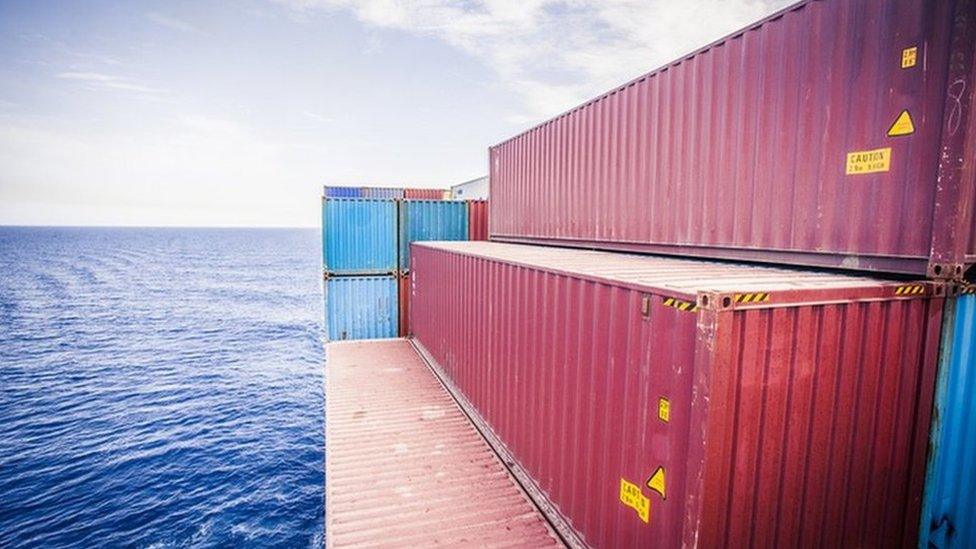
File image
Houthi rebels have hit a US-owned cargo ship with a ballistic missile off the coast of Yemen, the US says.
The vessel, Gibraltar Eagle, reported "no injuries or significant damage", according to the United States military command for the Middle East (Centcom).
The Marshall Islands-flagged vessel is continuing on its journey in the Gulf of Aden.
Iranian-backed Houthis have been attacking ships since November, in protest at Israel's war against Hamas.
Shipping company Eagle Bulk Shipping said the bulk carrier was carrying steel products and was about 160km (100 miles) offshore in the Gulf of Aden when it was hit.
It said the vessel "suffered limited damage to a cargo hold but is stable and is heading out of the area".
Hours earlier Centcom said that another missile, fired in the direction of a US destroyer in the Red Sea, had been intercepted and shot down by a US fighter jet.
The Houthis have been attacking commercial ships in the Red Sea that the group says are linked to Israel, or bound for Israeli ports. It says the attacks are a show of support for the Palestinians and Hamas in Gaza, as Israel continues its military campaign there.
The British maritime security firm, Ambrey, says the Gibraltar Eagle was "assessed to not be Israel-affiliated".
But a senior Houthi official said on Monday that American vessels were also considered targets. "It is enough for ships to be American for us to target them", Nasr al-Din Amer said.
The Houthi attacks on cargo ships in the Red Sea have led many of the world's biggest shipping companies to change course, thus causing major disruption to global commerce.
In reaction to Monday's strike, the US Department of Transportation issued a maritime alert, recommending "that US flag and US-owned commercial vessels" remain clear of specified areas in the Red Sea and Gulf of Aden, external.
On Monday, the world's second largest oil company, QatarEnergy, announced its decision to pause shipping via the route while it sought security advice.
Last week, US and the UK forces struck Houthi targets in Yemen in retaliation for attacks on shipping. The joint forces, in coordination with allies, carried out dozens of air and sea strikes on Houthi missile launch sites and air defence systems inside Yemen.
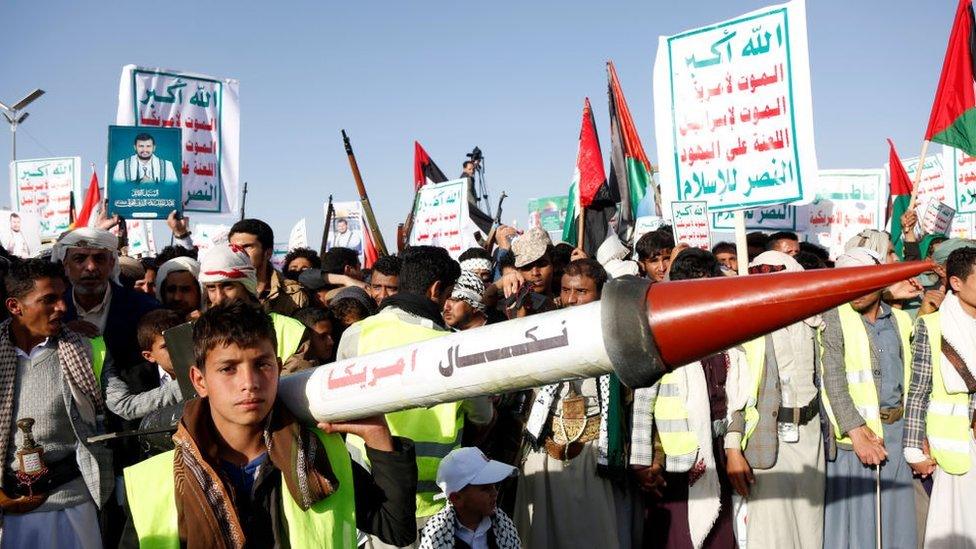
A man holds a mock missile while protesting in the Yemeni capital Saana against the US-UK attacks on Houthi targets
On Monday, the UK's Prime Minister Rishi Sunak said 13 Houthi launch sites had been destroyed by its military action. Mr Sunak said that while he would not "speculate on future action", doing nothing would have weakened regional security.
US intelligence assesses that the joint US-UK airstrikes on the Houthis' military facilities have destroyed about a quarter of their arsenal.
But the Houthis' chief negotiator, Mohammed Abdulsalam told Reuters news agency that attacks on Israeli ships or those heading to Israeli ports would continue, in spite of the US-led airstrikes.
Washington has blamed Iran for being behind the Houthi missile capability, which Tehran denies. Iran's foreign minister, Hossein Amir-Abdollahian, said in a press conference on Monday that the West must stop the war against Yemen immediately.
Related topics
- Published15 January 2024
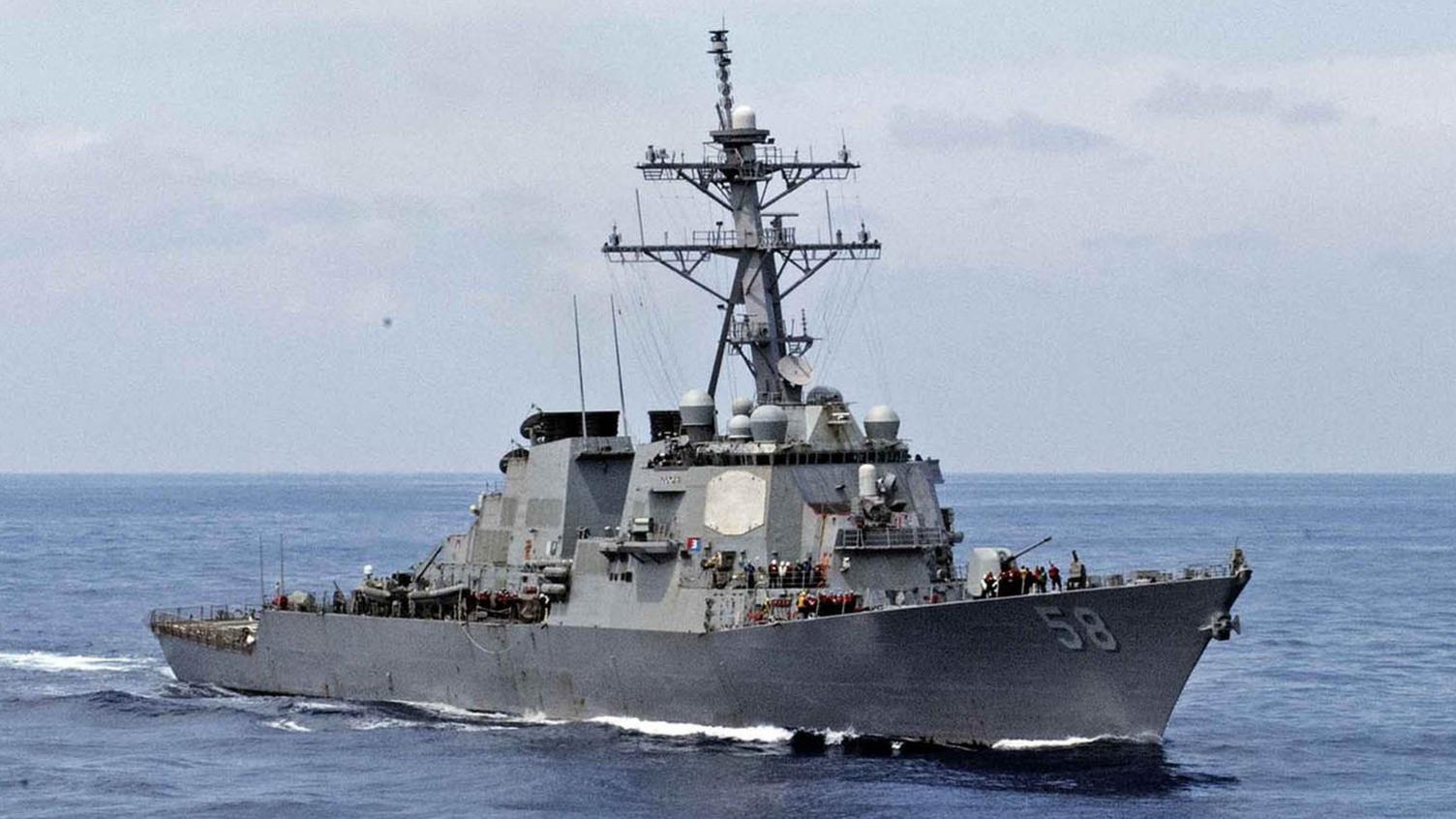
- Published12 January 2024
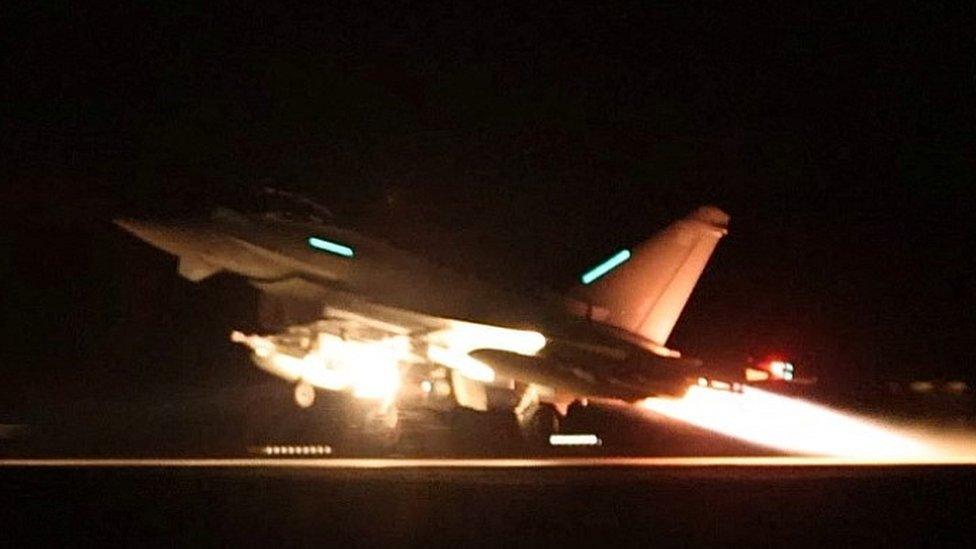
- Published12 January 2024
